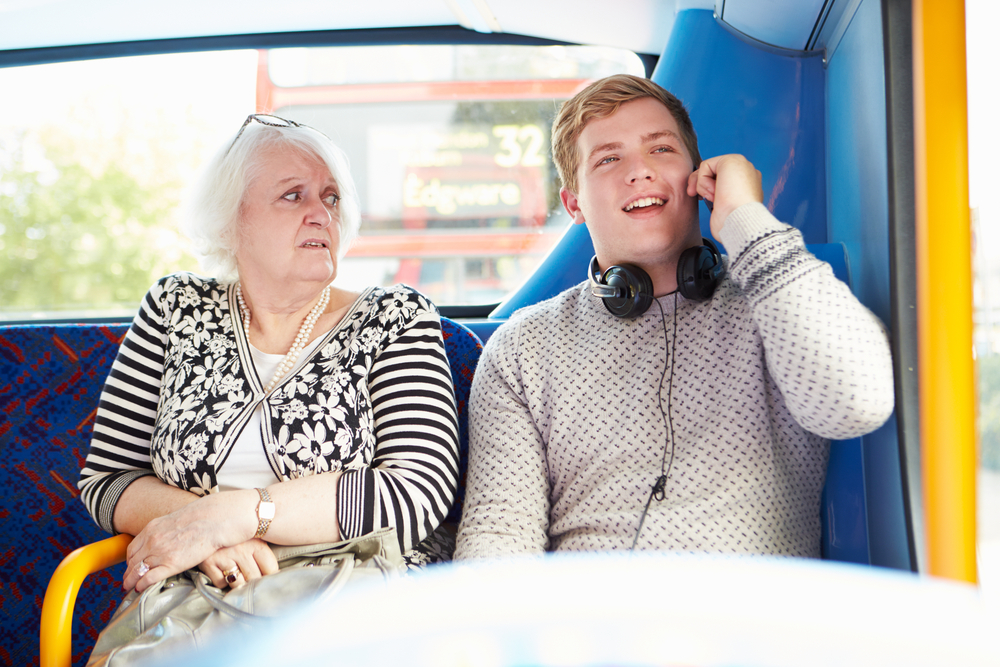REVEALED: The Biggest Icks of Public Transport

Public transport throughout the UK is used by millions of people every day for all manner of journeys. However, not every experience on trains, buses, metros, and undergrounds is a positive one. When you take public transport consistently, you can start to build a certain intolerance or to use the cool, new term: ‘ick’, towards certain behaviours. Some can be so bad they might even encourage you to ditch the transport entirely and get a bike to ride to work instead. With that in mind, Leisure Lakes Bikes Cardiff have listed the biggest ick in public transport across the nation.
We’ve gone sifted through the internet, from forums to social media, and broken down some of the most popular grievances of public transport users to find the most common and popular icks of travelling on these services.
Disruptive teenagers and anti-social behaviour
There are fewer experiences more universal than the frustration we feel when we get on a bus and hear music blasting from a teenager’s phone speaker at the very back. It’s one of the most common complaints by passengers, as it’s the easiest form of transport for school-age teenagers and young adults to get to and from school at the same peak times as commuters.
It all boils down to teenage exuberance, which is completely normal for them to be louder and maybe a bit more obnoxious than usual. Combined with the limited space available on these transport options, it can become grating very quickly.
Strikes and industrial action
Transport strikes have become more and more common in recent years, from the national train strikes seeing the delay and cancellation of hundreds of services throughout the UK to local public transport options being ground to a halt.
While the reasons behind the strikes are completely valid, and the passengers may even sympathise with their cause, it’s also understandable that the frustration bubbling up is also justified. Being unable to account for how their journeys will be affected can result in lateness or missing start times or appointments.
Poor personal hygiene
Limited space strikes again, as within the confinement of public transport, poor personal hygiene sticks out like a sore thumb. Whether it’s unpleasant odours from clothing or skin, it doesn’t just affect the person in question, but every other passenger around them. Adding in how long potential journeys can be, this could mean that longer commutes around these individuals can become incredibly jarring.
The difficulty with this issue is that it all comes down to the individual. Transport authorities can do everything in their power to promote and encourage cleanliness and good personal hygiene, but there’s nothing they can physically do to force them to do so.
Bad punctuality
The punctuality of public transport is crucial to every passenger’s journey. It’s the first thing that’s considered when planning how to get to and from their destination, and while timetables and schedules are in place for buses and trains alike, delays can disrupt everything in an instant. Not only does this affect the immediate journey but also the perception of the system.
This is one area where providers and operators must invest more, as a lack of faith in public transport will mean a decrease in footfall, thus resulting in a loss of revenue.
Lack of personal space
Train and tram cars, as well as buses, can be tremendously cramped, especially during peak times when many are using the service to get to their destination. Depending on the length of your journey, it’s understandable that personal space being invaded can quickly move from being a necessity for your travel to an uncomfortable nightmare.
Combine this with a lack of space when sitting down (made worse by manspreading and inconsiderate placement of belongings) or feeling like a tin of sardines when stood and pushed against a window, and it could turn anyone off from using one of these services.
It’s nearly impossible to avoid the negatives of public transport all the time, but these frustrations can build up over time, especially if you’re a frequent user. The only way to truly mitigate the amount of times you experience them is to avoid travelling during peak times, which is often not an achievable lifestyle change due to working or school hours.




